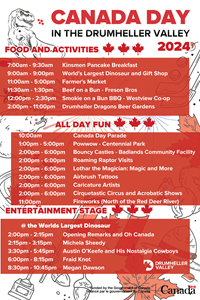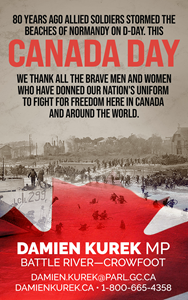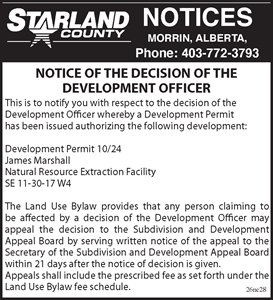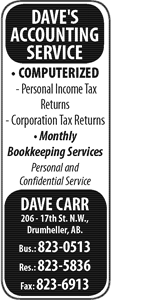Federal election imminent
On Tuesday, Finance Minster Jim Flaherty brought down the federal budget and almost instantly it was universally panned by the opposition parties. With the government not appearing to budge and make concessions, it appears the country is heading into its next federal election. The Liberals gave a Notice of Motion on Wednesday, and it is expected the government will fall today (Friday).
It is not unexpected judging by what is in the budget, said Owen Neal, social studies teacher at DVSS. He said it is an election budget, and it might be the best kick at the can for the Conservatives to gain its majority.
"The opposition parties have no ideas, there is nothing new they are bringing to the table, there are no proposals, there are no platforms,” said Neal. “They don’t have much money, and there isn’t a very strong leader of the opposition groups and they have no momentum.”
He adds that opinion polls put the Conservatives in the range of a majority government. In the last election, the Conservatives won 143 of the 308 seats in Parliament, about a dozen short of the majority government.
“For the Conservatives, this is their opportunity,” said Neal.
Curtis Phillips teaches high school social studies at St. Anthony’s School. As part of current events, the topic of the election comes up, and some of his students are engaged.
“Some of my students, especially the ones who are turning 18 seem to be enthusiastic about voting,” said Phillips.
He agrees that this latest budget is an election budget.
“If the government goes down, they will be able to look at the social programs and social spending, and say, ‘The NDP wanted this and we tried to accommodate them, we tried to work with them, and they voted it down,’” said Phillips. “It is electioneering on all sides at this point.”
His hope for his students during an election years is that they pay attention to the discourse, but focus on the process and the issues.
“My big concern is hyper partisanship,” he said. “In the past you might say ‘This person loves the country, they just have a different view than I have because it is a battle of ideas.’ Now it has become a battle of personalities, where this person is no longer a person I disagree with, but a person who hates the country and we want to do everything to destroy his philosophy, and it goes both ways, left and right.”
Neal said Canadian political systems is a part of the Grade 9 curriculum, although he expects most teachers would discuss something as impending as a federal election.
“Some (students) are very interested, there is always that group of students, where it is a passion of theirs and they are very knowledgeable,” said Neal, adding it doesn’t hold the attention of many others.
“It is still a distant removed idea for a lot of students to concentrate on these things.”
Phillips said for students to experience an election at this age might help them develop their own political ideals.
“Some have a very strong sense in what they believe. They have a firm grasp, and when they get to the upper high school age, they are very strong on that regard,” said Phillips. “In Grade 10, they are still not very certain, they are still learning about politics and their own ideological beliefs and that is an ongoing process.”




























